The demand for eCommerce businesses has skyrocketed, and Shopify remains one of the most popular platforms for entrepreneurs looking to build and grow online stores. However, not everyone wants to start from scratch. Many business owners prefer to purchase ready-made Shopify stores to save time and effort. Likewise, existing store owners often look for opportunities to sell their Shopify store and cash in on their success.
This guide provides a detailed overview of how to buy and sell Shopify stores, including where to find Shopify stores for sale, how to evaluate a purchase, and the best strategies for selling a store for maximum profit.
I. Why Buy a Shopify Store?
Starting an online business from scratch involves numerous challenges, from product research to website setup and marketing. Purchasing a pre-built Shopify store eliminates many of these hurdles. Here are some key reasons why entrepreneurs choose to buy Shopify stores instead of creating their own:
- Instant Business Launch: A fully functional store allows you to start selling immediately, avoiding the long process of product sourcing and website development.
- Proven Revenue Model: Established Shopify sites often come with a track record of sales, making them less risky than new businesses.
- Existing Traffic and Customers: Many Shopify stores for sale already have a steady flow of traffic from organic search, social media, or paid ads, reducing the need for extensive marketing efforts.
- Tested and Profitable Products: Instead of spending months testing different products, you can purchase a store that already sells proven items.
- Brand Reputation and Trust: Established stores often come with social proof, such as reviews, customer testimonials, and a loyal audience.
II. Types of Shopify Businesses to Buy
Before purchasing a Shopify store, it’s essential to understand the different types of Shopify businesses available. Each type has its own advantages, challenges, and revenue potential.
2.1. Dropshipping Stores
Dropshipping stores sell products without holding inventory. Instead, suppliers fulfill orders directly to customers. This model has low upfront costs and minimal risk, making it a popular option for first-time buyers. However, profit margins can be lower due to supplier fees and competition.
2.2. Print-on-Demand Stores
A print-on-demand (POD) store sells custom-designed products such as t-shirts, mugs, and phone cases. The supplier prints and ships items only after a customer places an order, reducing the need for inventory. This is an excellent option for creative entrepreneurs looking to build a brand.
2.3. Private Label and Branded Stores
A private label Shopify store sells products manufactured by a third party but branded as the store’s own. These stores often have higher profit margins and stronger customer loyalty.
2.4. Subscription-Based Stores
Subscription businesses offer recurring revenue by selling products on a weekly, monthly, or annual basis. Common examples include subscription boxes for beauty products, snacks, or fitness supplements.
2.5. Established eCommerce Stores
Some Shopify stores operate as traditional online stores that stock inventory and handle fulfillment. These stores often have high revenue and profit potential but require more operational management.
2.6. One-Product Stores
A one-product store focuses on selling a single item or a niche variation of a product. This type of store is designed for maximum conversion, often using a high-converting landing page.
III. Where to Find Shopify Stores for Sale?
If you're looking to buy a Shopify store for sale, several marketplaces and platforms specialize in connecting buyers with sellers. Whether you're a first-time entrepreneur looking for a turnkey business or an investor seeking high-revenue stores, the right platform depends on your goals, budget, and experience level. Below, we explore the best marketplaces to find Shopify websites for sale, their key features, and tips for making a successful purchase.
3.1. Flippa
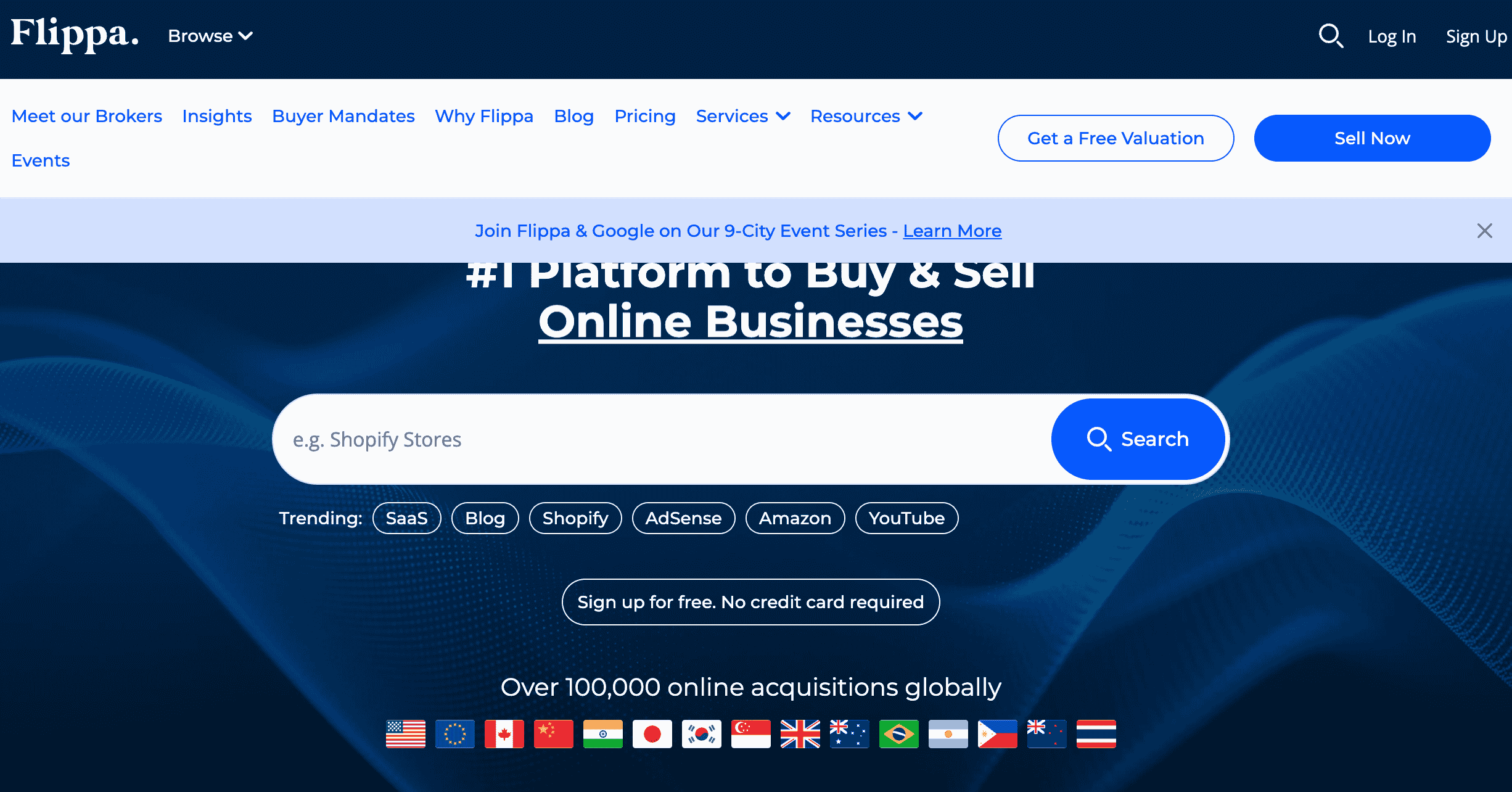
Flippa is one of the most well-known marketplaces for buying and selling online businesses, including Shopify stores. It features a wide range of businesses, from small starter stores to high-revenue eCommerce brands.
Best for: Entrepreneurs looking for affordable Shopify stores, including dropshipping and print-on-demand businesses.
Key Features:
- Transparent financial data and seller verification process.
- Listings include auction and fixed-price options.
- Direct negotiation with sellers for price flexibility.
- Useful insights on site traffic and revenue trends.
- Escrow service for secure transactions.
Pricing:
- Free to browse listings.
- Listing fees start at $49.
- Flippa charges 5-10% commission on successful sales.
3.2. Empire Flippers
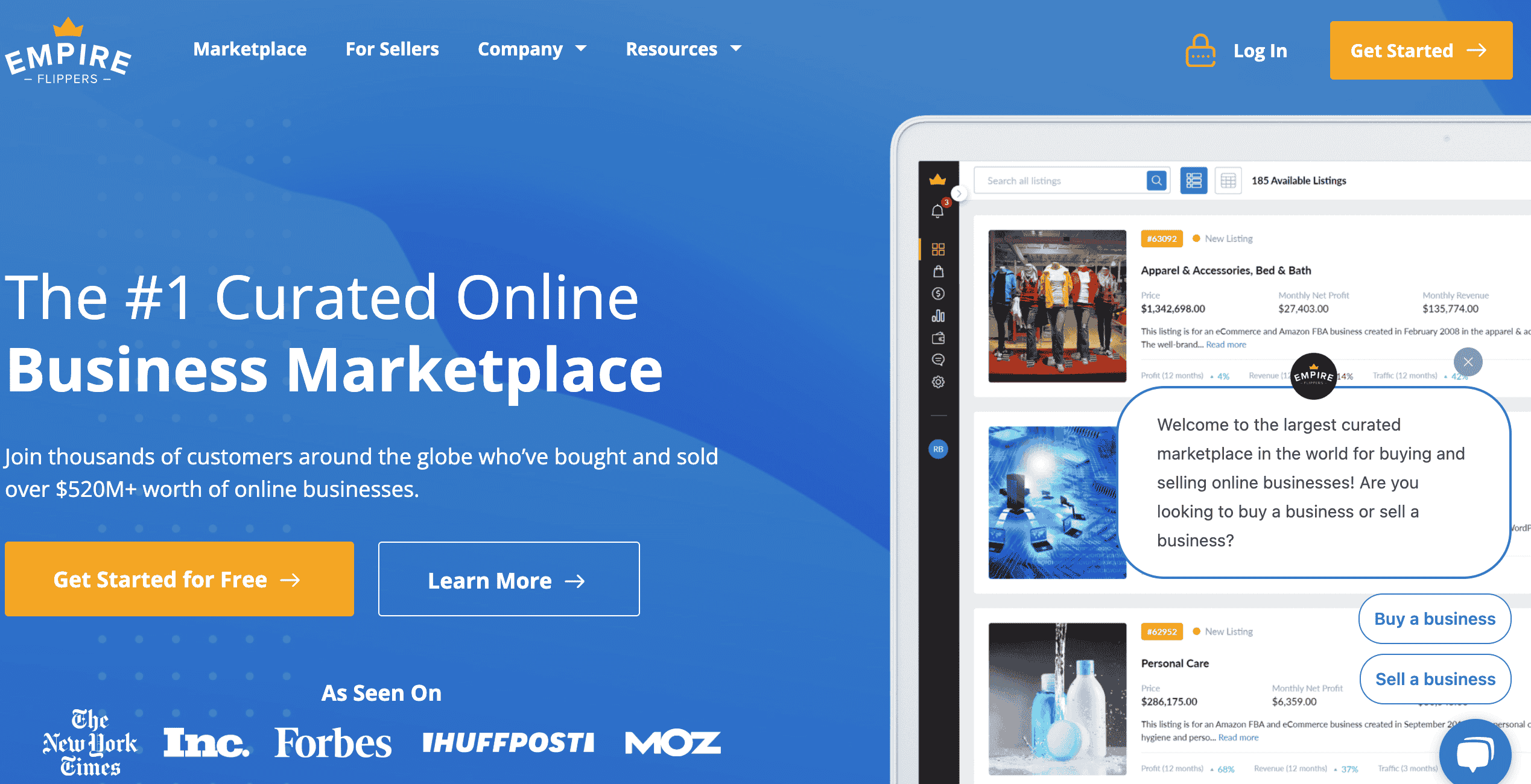
Empire Flippers is a premium marketplace that specializes in high-quality, established online businesses. Every listing undergoes a rigorous verification process, ensuring buyers get accurate financial data before purchasing.
Best for: Investors looking for Shopify businesses with strong revenue and proven profitability.
Key Features:
- Pre-verified financials and revenue data.
- Secure escrow system for safe transactions.
- Dedicated support team for buyers and sellers.
- Listings include profitable eCommerce, dropshipping, and branded Shopify stores.
- Exclusive deal flow for premium buyers.
Pricing:
- Free to browse listings.
- Empire Flippers charges a 2-15% success fee depending on the business valuation.
3.3. FE International

FE International is a mergers and acquisitions (M&A) advisory firm specializing in eCommerce, SaaS, and content-based businesses. They focus on high-value transactions and work with serious investors.
Best for: Experienced buyers and investors looking for high-revenue Shopify businesses.
Key Features:
- Professional valuation reports and business analysis.
- Strict vetting process ensuring only profitable stores are listed.
- Full acquisition support, including legal and financial guidance.
- Large network of high-net-worth investors.
- Trusted by private equity firms and venture capitalists.
Pricing:
- Free to browse listings.
- Commission fees vary based on business valuation and deal complexity.
3.4. Acquire (formerly MicroAcquire)
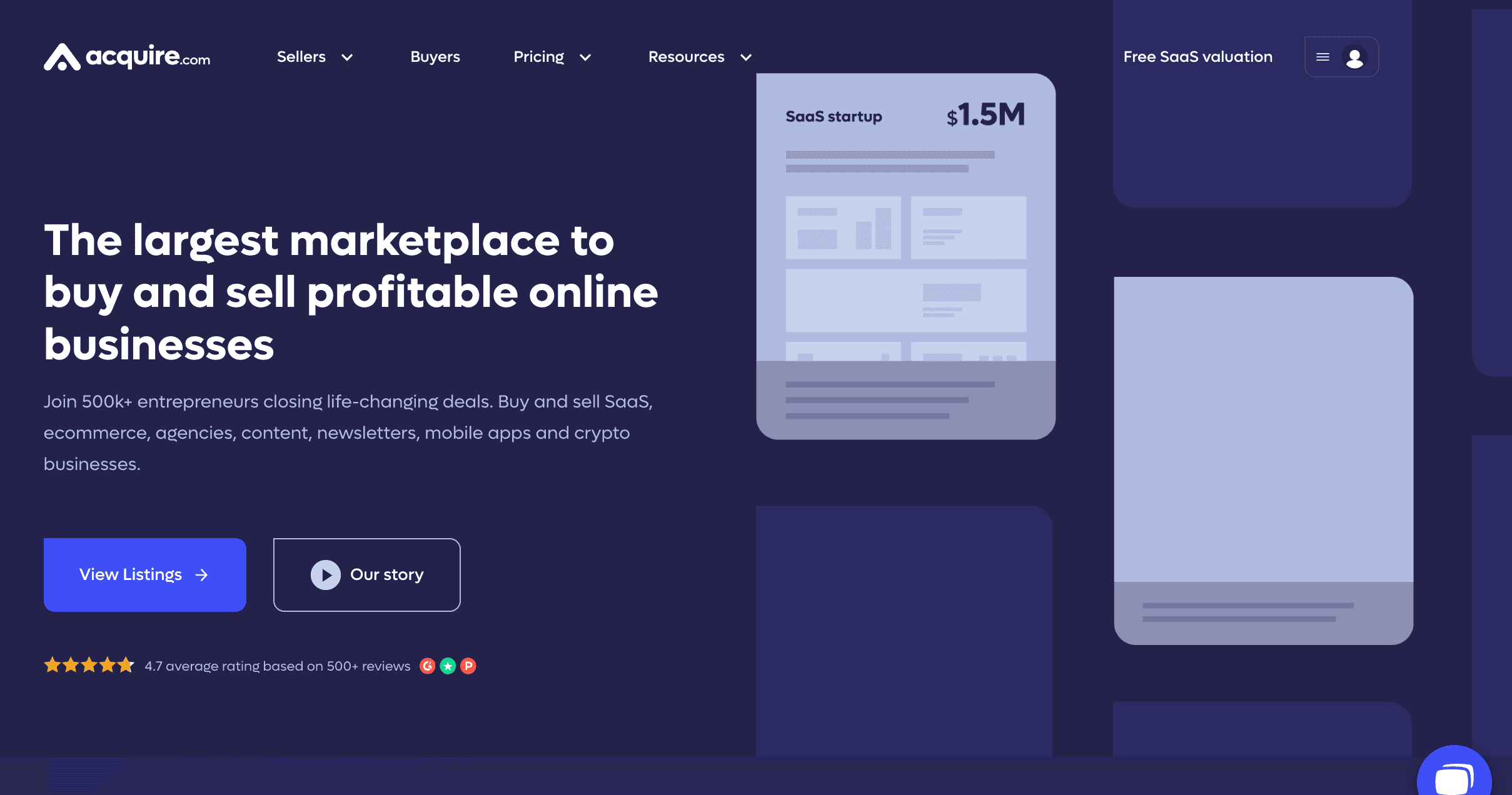
Acquire.com is a modern marketplace designed for entrepreneurs looking to buy or sell online businesses, including Shopify stores. Unlike traditional brokerages, Acquire.com enables direct negotiations between buyers and sellers.
Best for: Buyers interested in early-stage and small Shopify businesses.
Key Features:
- No commission fees for buyers.
- Direct communication with sellers for quick deals.
- A wide range of Shopify stores, from startups to established brands.
- Confidential listings for premium sellers.
- Free valuation tool for sellers.
Pricing:
- Free to browse listings.
- No commission fees for buyers.
- Sellers can upgrade to premium for enhanced visibility.
3.5. BizBuySell
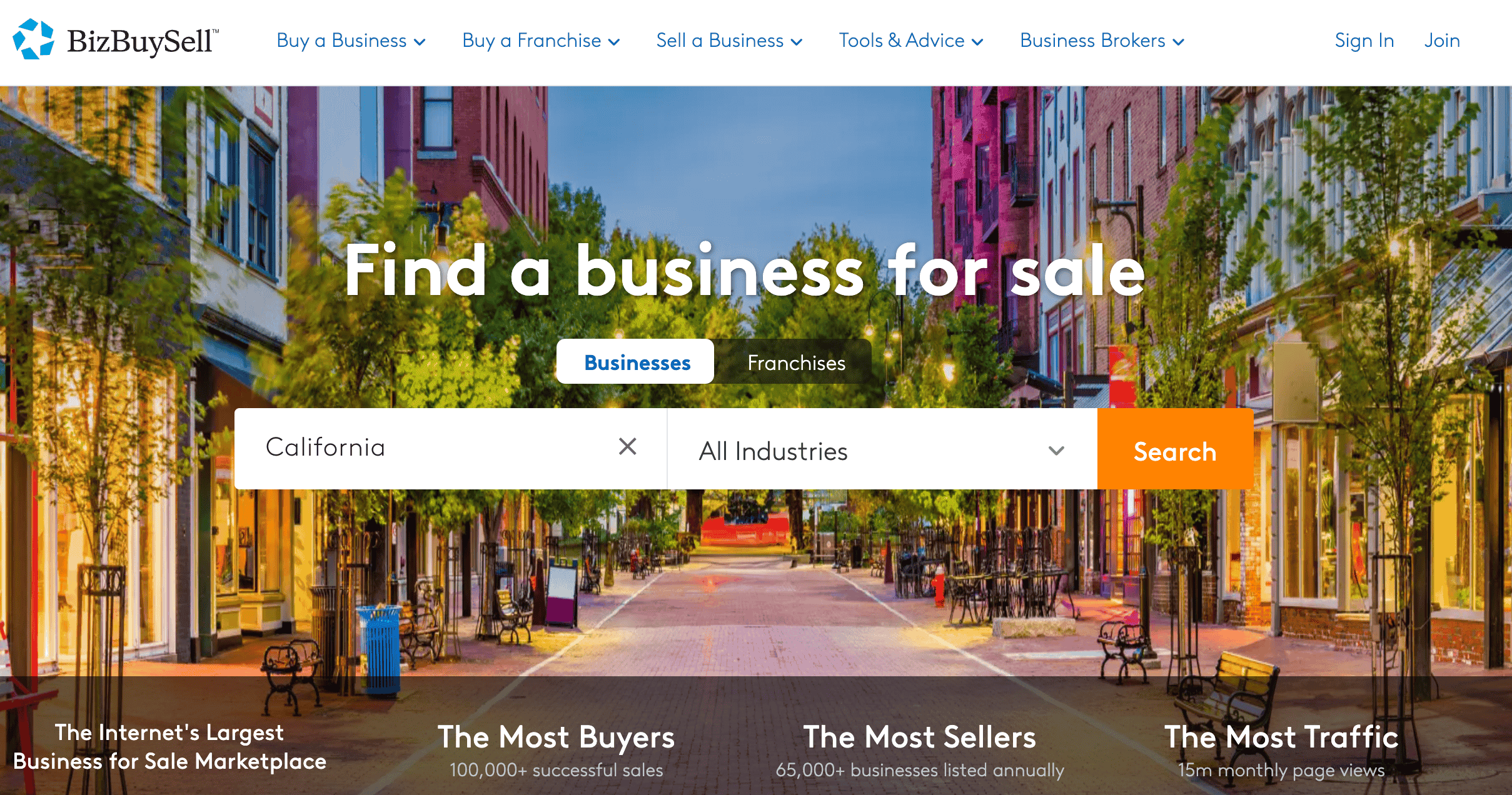
BizBuySell is one of the largest online marketplaces for buying and selling businesses across various industries, including eCommerce and Shopify stores.
Best for: Buyers looking for Shopify businesses in diverse industries, including fashion, electronics, and home goods.
Key Features:
- Extensive business listings across multiple categories.
- Professional valuation services for accurate pricing.
- Broker assistance for complex transactions.
- Financing options available for qualified buyers.
- Established credibility with a large network of business owners.
Pricing:
- Free to browse listings.
- Fees vary based on business type and transaction size.
3.6. Website Closers
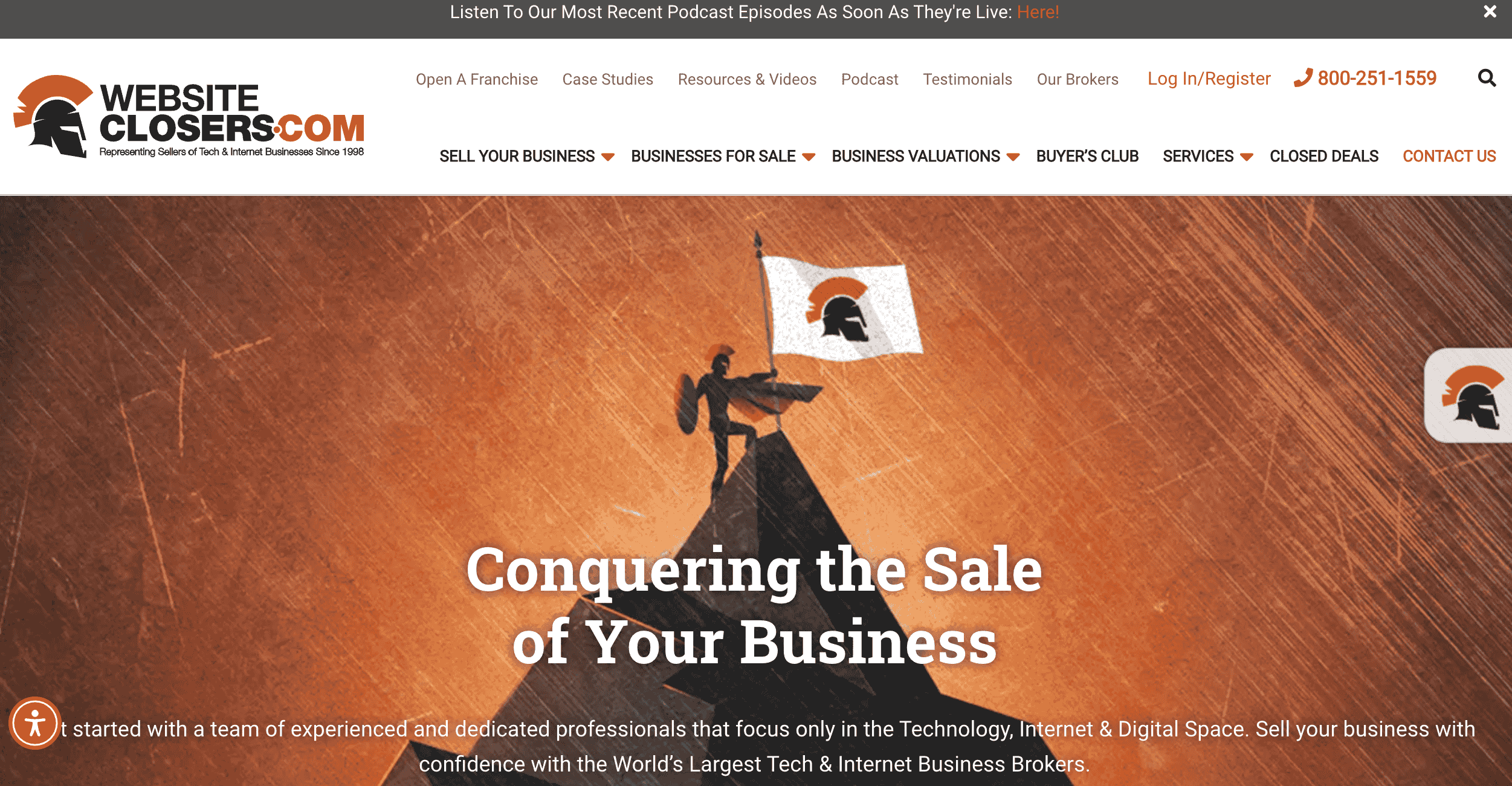
Website Closers is a brokerage firm specializing in the sale of online businesses, including eCommerce and Shopify stores. It is known for handling high-value transactions and helping buyers find profitable Shopify businesses.
Best for: Investors looking for established, profitable Shopify stores with strong financials.
Key Features:
- Professional business valuation for sellers.
- Expert negotiation support to maximize deal value.
- Strong focus on high-revenue eCommerce brands.
- Seller financing options available.
- Specialized in handling larger acquisitions.
Pricing:
- Commission-based fees vary depending on business valuation.
3.7. Ecomswap
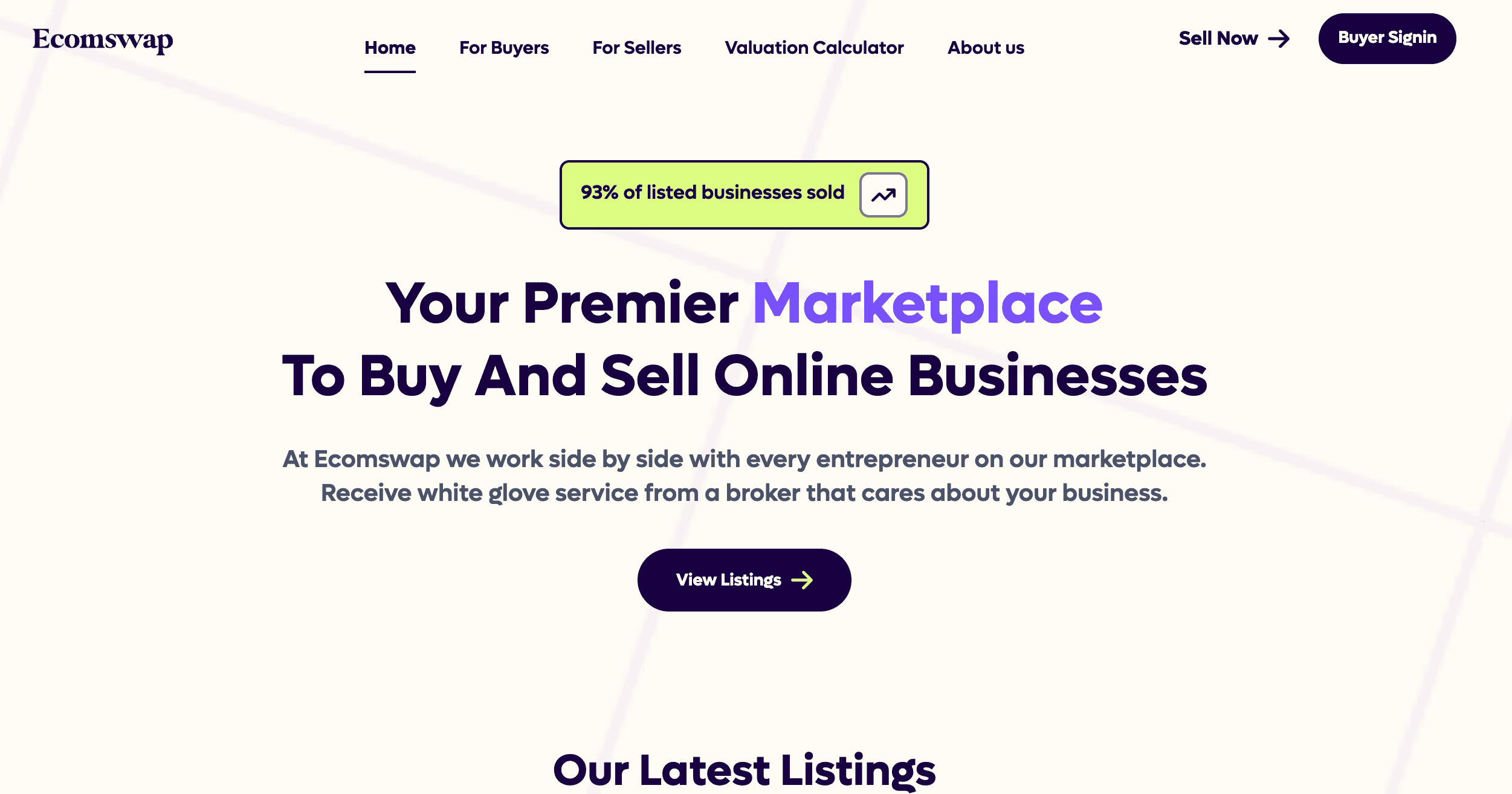
Ecomswap is a marketplace dedicated specifically to buying and selling Shopify stores. Unlike general business marketplaces, Ecomswap focuses on eCommerce stores, making it a great place for buyers looking for niche or profitable Shopify businesses.
Best for: Buyers looking for Shopify stores of all sizes, from small dropshipping businesses to established brands.
Key Features:
- Wide variety of eCommerce business models.
- Direct communication between buyers and sellers.
- Affordable business listings, including budget-friendly Shopify stores.
- Secure payment transactions.
Pricing:
- Free to browse listings.
- Transaction fees depend on deal size.
3.8. BusinessesForSale
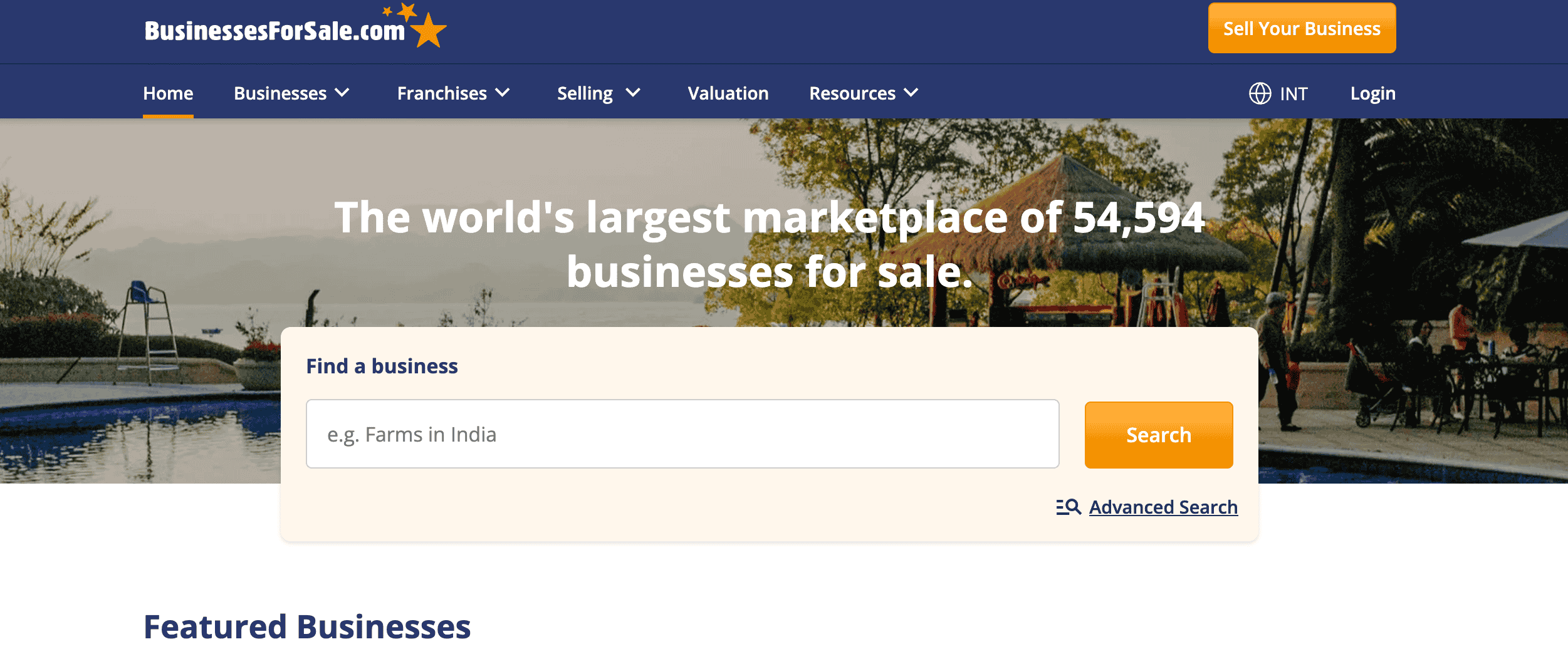
BusinessesForSale is an international marketplace for buying and selling businesses, including Shopify stores. It features listings from various industries and is a good platform for buyers looking for diverse investment opportunities.
Best for: Buyers looking for Shopify businesses with a global reach.
Key Features:
- Extensive business listings across different industries.
- Global marketplace with international sellers.
- Various pricing tiers for different business sizes.
- Financing options available for buyers.
Pricing:
- Free to browse listings.
- Listing fees and commissions vary by business type.
IV. How to Sell Your Shopify Store
If you own a Shopify store and are considering selling it, follow these steps to increase its value and attract potential buyers.
-
Optimize Financial Records: Buyers look for clear financial documentation. Ensure that your revenue, expenses, and profit margins are accurately recorded.
-
Increase Sales Before Selling: A store with growing revenue is more attractive to buyers. Improve your SEO, advertising, and customer retention strategies before listing the store for sale.
-
Prepare a Business Valuation: Use tools like Flippa, Empire Flippers, or FE International to estimate your store’s worth. A well-documented valuation helps you negotiate a better price.
-
Choose the Right Marketplace: List your store on a reputable platform that matches its size and revenue level.
-
Negotiate and Close the Sale: Be ready to provide store performance data, marketing strategies, and supplier relationships during negotiations. Work with a broker if necessary to finalize the deal securely.
V. Things to Consider Before Buying a Shopify Store
Buying a Shopify store that’s for sale is not as easy as it looks. There are many aspects to evaluate before making a purchase. Factors such as financial performance, traffic sources, inventory, supplier relationships, and growth potential should be carefully assessed to ensure a profitable investment.
| Factor | What to Evaluate | Why It Matters | Potential Challenges |
| Financials | Historical sales data, profit margins, expenses, and valuation. | Ensures financial viability and fair pricing. | Inconsistent revenue, high operational costs, or inflated valuation. |
| Traffic Sources | Organic vs. paid traffic, main acquisition channels. | Determines sustainability of customer flow. | Heavy reliance on paid ads can increase costs. |
| Current Inventory | Value of existing stock, product demand, supplier availability. | Ensures smooth operations post-purchase. | Overstocking or supplier discontinuation of key products. |
| Suppliers & Shipping | Supplier reliability, shipping times, exclusive agreements. | Affects order fulfillment and customer satisfaction. | Slow shipping, supplier dependency, or unreliable partners. |
| Employees & Operations | Existing staff, workload, customer service requirements. | Impacts day-to-day management efficiency. | High operational workload or need for new hires. |
| Technical Assets | Shopify apps, integrations, payment gateways, automation tools. | Ensures smooth business operations. | Costly subscriptions or outdated technology. |
| SEO Strength | Keyword rankings, backlinks, page speed, mobile optimization. | Impacts organic traffic and marketing costs. | Poor SEO can lead to declining traffic and revenue. |
| Customer Loyalty & Brand Strength | Customer retention, email lists, reviews, and engagement. | Determines brand value and repeat business potential. | Low retention rates or negative brand perception. |
| Growth Potential | Expansion opportunities, new products, competitor analysis. | Helps assess long-term success and scalability. | Limited growth potential or saturated market. |
Final Thoughts
Buying and selling Shopify stores presents a lucrative opportunity for entrepreneurs. Whether you’re looking to buy a Shopify website to start an online business or sell your Shopify store for a profitable exit, following best practices ensures a smooth and successful transaction.
If you’re considering entering the market for Shopify sites for sale, start by exploring established marketplaces, conducting thorough research, and making strategic investment decisions. With the right approach, Shopify store ownership can be a highly rewarding venture.
Read more:
